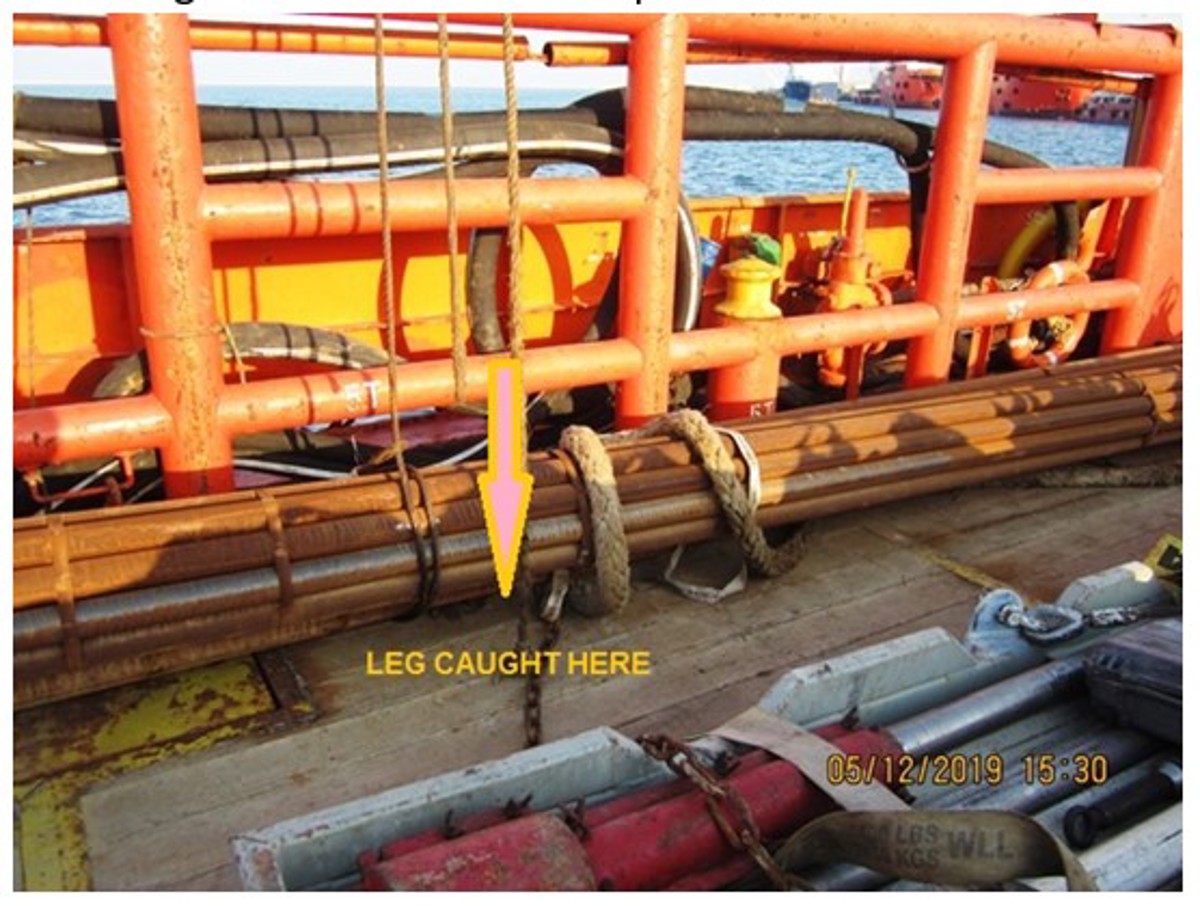LTI: Leg Fractured While Loading Tubulars
- Safety Flash
- Published on 15 September 2020
- Generated on 8 February 2026
- IMCA SF 27/20
- 2 minute read
Jump to:
What happened?
A load shifted during cargo operations, pinning a crewman’s leg between the deck and the load, causing a broken leg.
The incident occurred on a vessel which was in port to load cargo. The cargo consisted of various items including containers and multiple bundles of tubulars. The crane driver lifted the tubulars into position with the deck ratings providing voice communication to ensure that the load was in the correct position.
Once confirmed correct, the crane driver payed out the crane wire allowing the deck ratings to disconnect the sling from the lifting hook. Shortly after disconnection, the load shifted striking an AB in the left leg, pinning his leg between the deck and the tubulars.

What went wrong?
- The task of loading tubulars was considered routine and therefore was not risk assessed adequately.
- The likelihood of the tubulars not being secure and moving once landed had not been identified as a risk, and the injured AB was positioned in the line of fire with nothing to prevent the tubular load striking the leg.
- Risk Management processes did not identify hazards associated with task.
- Personnel were positioned in line of fire with no physical means of holding moving load.
- Vessel relied on a third party onshore provider to bundle load correctly with no checks.
Lessons learned
- Supervision and checking of loads is required prior to each lift, especially from third party providers.
- Multiple bundles of tubulars were lifted in a single lift.
- Physical means of holding loads (pins/chocks) should be deployed in case of potential moving load.
- Positive: the injured person was properly treated because the medical emergency procedures were well drilled and practised.
Actions
- Ensure agreed lifting plans and configuration of unusual loads with third party or client prior to lift.
- Vessel crew should inspect and supervise the loading process.
- Deploy pins or chocks to prevent load moving to impact personnel.
- Personnel reminded not to stand in line of fire during/ or post lift.
Related Safety Flashes
-
IMCA SF 07/19
18 April 2019
-
IMCA SF 04/15
20 March 2015
-
IMCA SF 08/06
22 June 2006
IMCA Safety Flashes summarise key safety matters and incidents, allowing lessons to be more easily learnt for the benefit of the entire offshore industry.
The effectiveness of the IMCA Safety Flash system depends on the industry sharing information and so avoiding repeat incidents. Incidents are classified according to IOGP's Life Saving Rules.
All information is anonymised or sanitised, as appropriate, and warnings for graphic content included where possible.
IMCA makes every effort to ensure both the accuracy and reliability of the information shared, but is not be liable for any guidance and/or recommendation and/or statement herein contained.
The information contained in this document does not fulfil or replace any individual's or Member's legal, regulatory or other duties or obligations in respect of their operations. Individuals and Members remain solely responsible for the safe, lawful and proper conduct of their operations.
Share your safety incidents with IMCA online. Sign-up to receive Safety Flashes straight to your email.